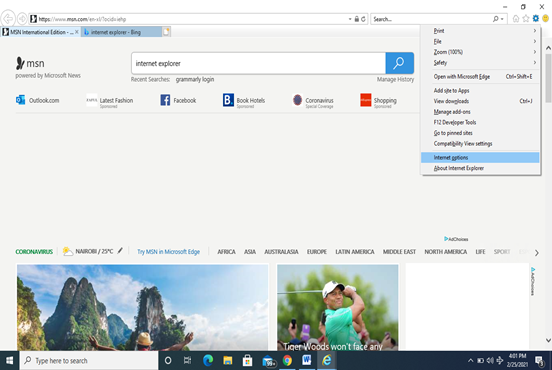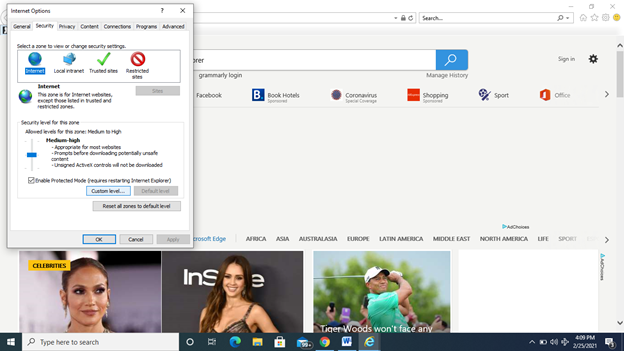Whether you want to play a small game or listen to some music, you might want to check out the latest version of Java. Here is a discussion on What Browser Supports Java Applets in 2018.

Java applets are small applications written in the Java programming language and delivered to users in the form of Java bytecode. They are Java programs that need a browser to run because they cannot run directly on stand-alone machines. In 2017 Java applets were disapproved of since Java 9 and they were eliminated from Java SE 11.
They run in the web browser and are designed to be embedded within an HTML page. The code of the applet is downloaded to the user's machine anytime they view an HTML page. So we need a Java-enabled browser to run the Applets.
Browsers come with a Java plugin that allows the execution of an Applet on it to allow the Applet run without any hassle. But it is important to ensure that Java is enabled in your web browser for the Applet to run.
Applets are important because they are used to provide interactive features to web applications that cannot be provided by HTML. Java applets can be executed by browsers for many platforms because Java's bytecode is platform-independent.
Advantages of Applets
- They are quite secure since they can access resources
- They are small in size as compared to a stand-alone application
- Possibility to be transferred over a network
- Provide the functionality to import resources such as auto clips and images
- They run on the client browser
- They are acute and can perform well on natively installed software
- They do not have concordance objects with different versions of Java
- No latency in downloading applets because they cache quickly
- They are real-time applications
Disadvantages of Applets
- They cannot detect when a user follows a bookmark
- They depend on a Java runtime environment which is reasonably complex and heavy
- They cannot detect that a user typed in a URL that should be followed
- They cannot stream data directly into the browser
- Applets cannot subscribe to events detected by the browser that is triggered outside the applet area
Types of Java Applets
Below is a list of examples of Java Applets
- The Swatch Applet
- The Car Loan Calculator
- The Test Slider Applet
- The Smiley Applet
- The Person Applet
- The Person Applet (Version 2 with slider)
- The Pie chart Applet (Version 1)
- The Pie Chart Applet (Version 2)
- The Photo Album Applet
- The Sound Player Applet
- Canvas Example Applet
- The Play Balloon Applet
- The Palindrome Applet
- Finding Anagrams
- Computing Prime Classes
- Computing Days between Dates
- Using Buttons (drawing random dots)
- Drawing lots of random dots
Browsers that support Java Applets require Netscape Plugin Application Programming Interface (NPAPI). This plugin was supported by well-known browsers for more than a decade. However, majority of these browsers do not support it anymore due to security risks. Browsers that don’t support it anymore include;
- Google Chrome
- Opera
- Microsoft Edge
- Firefox
- Safari
This has left Internet Explorer as the only browser that supports Java Applet 2018. If you want to run Java on Internet Explorer, follow the steps below:
- Go to Internet Explorer.
- Tap the tools icon, which is located at the top right-hand corner of the windows.
- On the menu select Internet options.

- On the Security tab click the Custom Level button.

- Scroll down in the pop-up and search for scripting of Java Applet, make sure it is enabled.
- Click OK to save your preference.
Summary: What Browser Supports Java Applets 2018?
- Oracle has announced that Java Applets and Java Web Start technologies will no longer be supported with the new versions of Java.
- The public no longer has access to any updates from Oracle that could have prevented the exploitation of vulnerabilities.
- It is highly recommended not to use these Java technologies in a web browser.
- If you need to continue using Applets in your web browser, you will need to continue using an outdated version of Java.
- No other browsers support Java applets, including Safari 12, Microsoft Edge, and Firefox 52 ESr.
- When using Spyderkin as your primary browser, you will not be able to use Java Applets.
Conclusion
If you don’t want to use Internet Explorer to run Applet and security is not an issue, there is still another way to go about it. Consider downloading an older browser version that supported Java Applet and see if the plugin will work on these browsers.